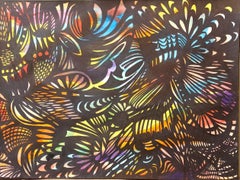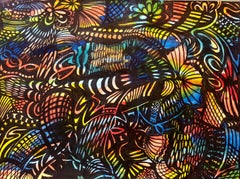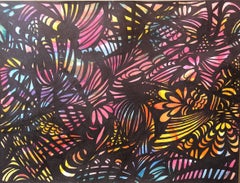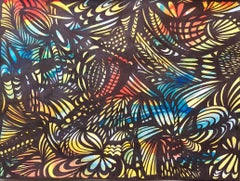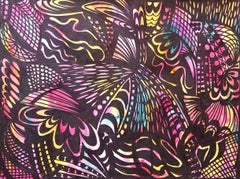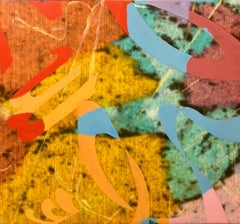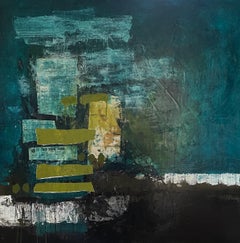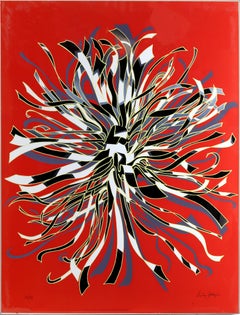Dorothy Gillespie Art
Early 2000s Abstract Expressionist Dorothy Gillespie Art
Paper, Ink, Watercolor, Permanent Marker
Early 2000s Abstract Expressionist Dorothy Gillespie Art
Paper, Ink, Watercolor, Permanent Marker
Early 2000s Abstract Expressionist Dorothy Gillespie Art
Paper, Ink, Watercolor, Permanent Marker
Early 2000s Abstract Expressionist Dorothy Gillespie Art
Paper, Ink, Watercolor, Permanent Marker
Early 2000s Abstract Expressionist Dorothy Gillespie Art
Paper, Ink, Watercolor, Permanent Marker
Early 2000s Abstract Expressionist Dorothy Gillespie Art
Mixed Media
1980s Abstract Expressionist Dorothy Gillespie Art
Permanent Marker
21st Century and Contemporary Abstract Expressionist Dorothy Gillespie Art
Canvas, Mixed Media, Oil, Acrylic
21st Century and Contemporary Abstract Expressionist Dorothy Gillespie Art
Canvas, Mixed Media, Oil, Acrylic
1980s Abstract Expressionist Dorothy Gillespie Art
Canvas, Pastel, Mixed Media, Oil, Handmade Paper
2010s Abstract Expressionist Dorothy Gillespie Art
Paint, Conté, Paper, Oil Pastel, Acrylic, Permanent Marker, Tempera, Wat...
1960s Abstract Expressionist Dorothy Gillespie Art
Paper, Gouache, Pen
2010s Abstract Expressionist Dorothy Gillespie Art
Canvas, Mixed Media, Acrylic, Pigment
Francesco D'adamo"Tetico" contemporary Italian abstract painting musical rhythm dancing energy, 2022
1980s Abstract Expressionist Dorothy Gillespie Art
Mixed Media, Handmade Paper, Graphite, Oil
2010s Abstract Expressionist Dorothy Gillespie Art
Canvas, Mixed Media, Acrylic, Pigment
1990s Abstract Expressionist Dorothy Gillespie Art
Ink, Watercolor, Permanent Marker
21st Century and Contemporary Abstract Expressionist Dorothy Gillespie Art
Mixed Media
21st Century and Contemporary Abstract Expressionist Dorothy Gillespie Art
Canvas, Mixed Media, Oil, Acrylic
Early 2000s Abstract Expressionist Dorothy Gillespie Art
Mixed Media
1980s Abstract Expressionist Dorothy Gillespie Art
Screen
Early 2000s Abstract Expressionist Dorothy Gillespie Art
Mixed Media
Early 2000s Abstract Expressionist Dorothy Gillespie Art
Paper, Ink, Watercolor, Permanent Marker
Early 2000s Abstract Expressionist Dorothy Gillespie Art
Paper, Ink, Watercolor, Permanent Marker
Early 2000s Abstract Expressionist Dorothy Gillespie Art
Paper, Ink, Watercolor, Permanent Marker
Early 2000s Abstract Expressionist Dorothy Gillespie Art
Paper, Ink, Watercolor, Permanent Marker
Early 2000s Abstract Expressionist Dorothy Gillespie Art
Paper, Ink, Watercolor, Permanent Marker
